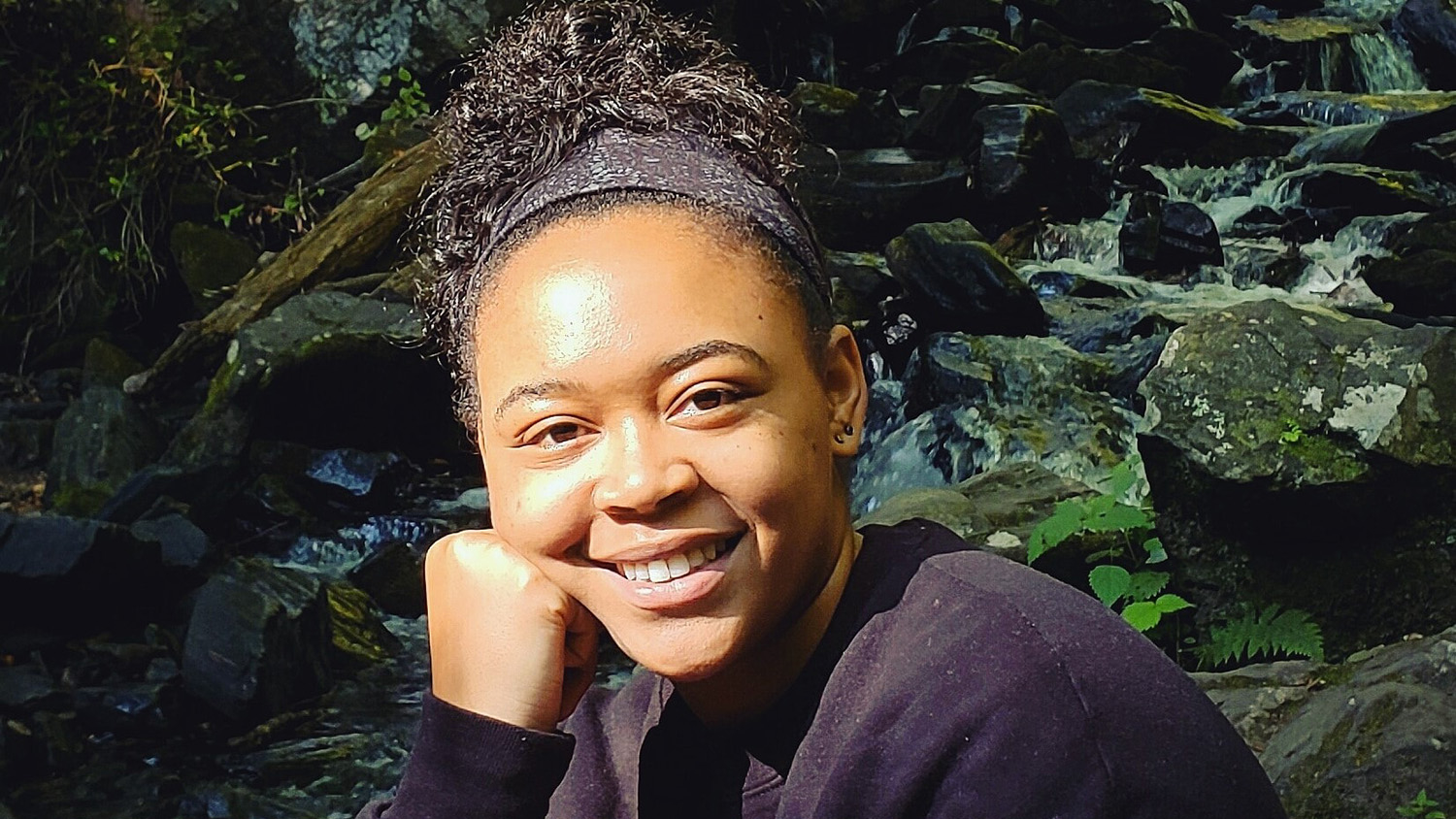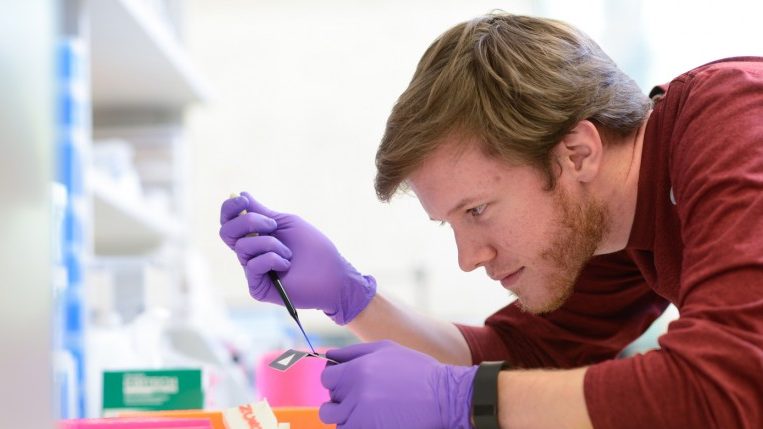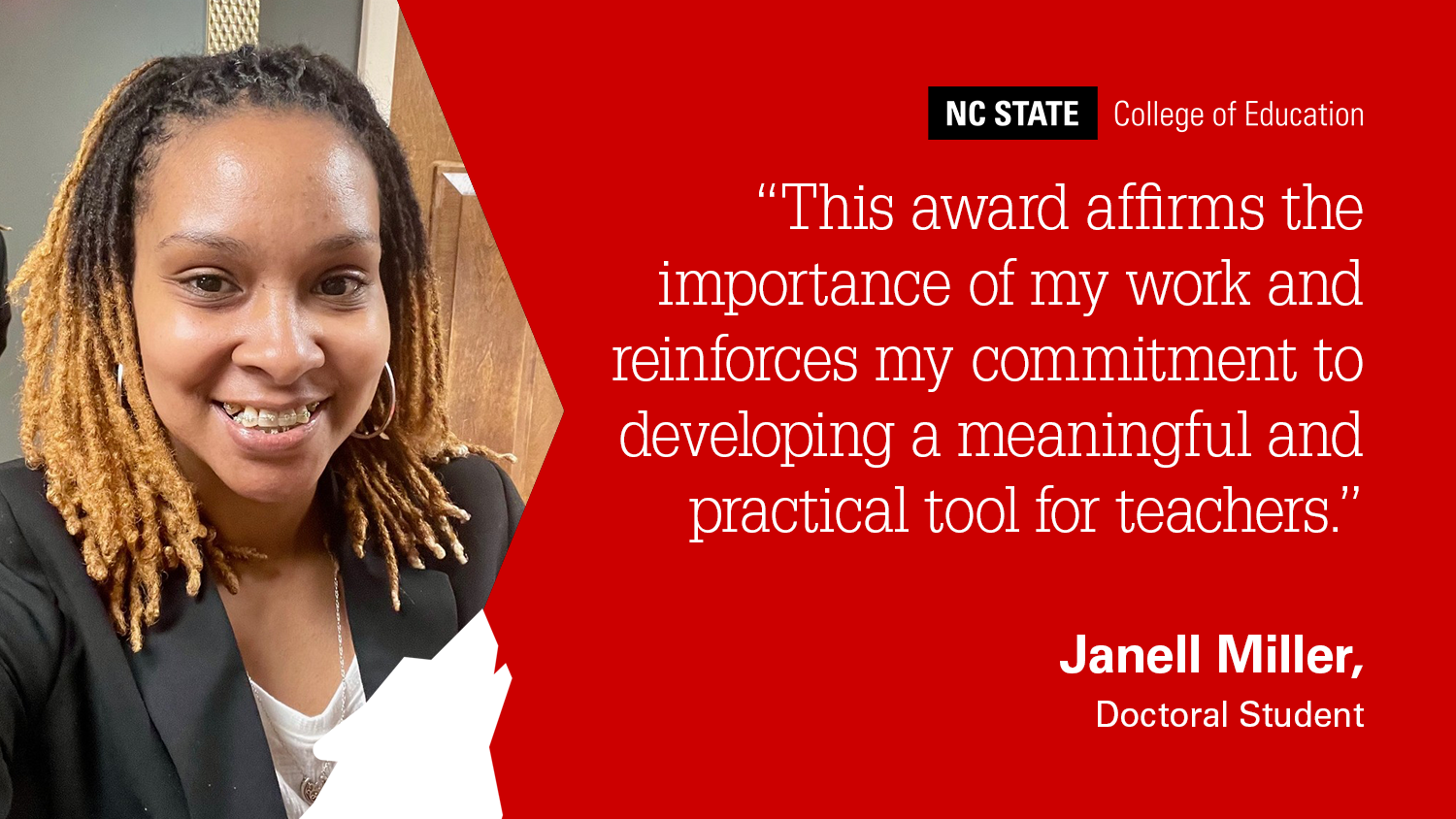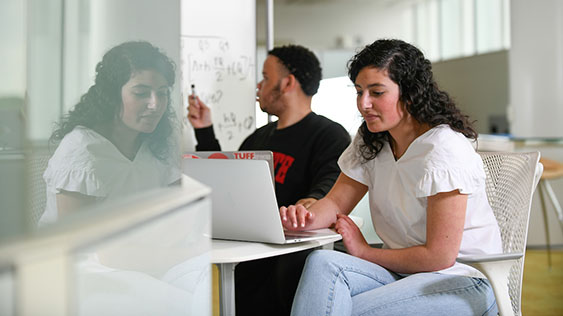Lauren Pharr is a master’s student in the Department of Forestry and Environmental Resources at NC State’s College of Natural Resources. She’s partnering with Neighborhood Nestwatch out of the Smithsonian National Museum of Natural History in Washington, D.C., to research the effects of urban noise and light pollution on avian survival.
We recently spoke with Pharr about her experience as a Black scientist in the field of natural resources. The following Q&A is a part of a Black History Month series highlighting the outstanding contributions Black faculty, staff and students have made to the College of Natural Resources.
Can you recall some of your earliest memories of being outside?
My dad is a hunter; when I was younger, he would always take me with him. With that, I have always had a love for nature and animals, but I would have never thought that I would end up in this field studying nature and wildlife. My uncle was your enthusiastic backyard birder; I would always have my field guide out and talk on the phone with him about all of the cool birds he would see coming to his feeders. Although I enjoyed talking with my uncle about birds, I would have never thought I would end up becoming an ornithologist.
What has it been like as a Black, Indigenous, Person of Color (BIPOC) to study within your field and pursue your career?
My personal experience while at NC State pursuing a career in fisheries, wildlife, and conservation biology (FWCB) as a BIPOC has been very positive. My lab is very welcoming and encouraging, my advisor has been extremely helpful during my time here, and the FWCB faculty with whom I have built wonderful professional relationships have been nothing but helpful throughout my program and professional development.
What challenges have you faced in pursuing your degrees and career?
The pandemic has been a major challenge; particularly as a student, I’ve not only had to adapt to virtual courses but “virtual relationships.” The pandemic has made it a challenge to not see your colleagues every day, it has made it a challenge for networking, and it has also made it a challenge to build new relationships.
Research wise, the pandemic has posed a different challenge. My initial research for my master’s had to be canceled due to the pandemic (i.e county mandates and social distancing). Although in the end, I was able to learn new skills with my new project I pursued, it took me a while to move on from my initial project that I had put so much time and effort in. It was also hard on my undergraduate research assistants and even my project volunteers, who were each looking forward to participating and helping out with my project.
Do you have any specific memories of experiences in your career that stick with you?
As an ornithologist, my research involves getting up close and personal with birds. As a first-year master’s student, I got the opportunity to travel and participate in training to learn how to bird band, a skill which would be very beneficial towards my research. Although I didn’t get the chance to use this skill as much as I would have liked during my master’s research, I am looking forward to using this skill during my Ph.D. work, which will involve studying federally endangered red-cockaded woodpeckers.
Tell us about someone who supported and encouraged you to pursue your work.
Hands down my wonderful advisor, Dr. Caren Cooper. If it wasn’t for her taking a chance on me, I probably would not be here doing such amazing things at NC State. As an undergraduate, I struggled tremendously trying to find my passion. Dr. Cooper saw past my transcript and instead saw my potential, drive and willingness to learn. Now as a second-year master’s student slowly transitioning into my Ph.D., Dr. Cooper has been nothing but supportive and she always makes opportunities known to me as I continue my professional development and role in academia as a BIPOC.
I also must give acknowledgment to Dr. Christopher Moorman. Besides serving as a member on my graduate committee, we have worked on a few projects together and have some planned for the future. Dr. Moorman is a wonderful professor, mentor and colleague; he supports me and my work as a graduate student, and he is so enthusiastic and always available to lend his expertise in the wildlife field whenever I become a curious grad student and seek to understand certain concepts in the field of wildlife biology.
Why are you passionate about your field or work?
I use to be super intimidated by it at first, but now I have become more confident explaining to people why I do what I do, especially when they initially don’t understand the purpose of studying wildlife in the first place. As a researcher and science communicator, my job is to communicate my research not only in the form of a manuscript but also communicate to the public so that they are more aware about wildlife and the factors that we as humans produce that are interfering with their survival on our planet. When I get questions from people wanting to contribute towards better practices to help wildlife, or when I get comments like “Oh, I never knew that, where can I learn more”, then I know I have done my job successfully.
From wildlife’s perspective, we need more people studying the outdoors and wildlife interactions as a whole so that we continue to better understand and therefore develop more effective conservation strategies. As a BIPOC in this field, I get many inquiries from other BIPOC’s simply asking me how I got here and where they can start. Seeing someone who looks like you in a field that lacks representation is mind-blowing to a lot of the younger BIPOC generation. I want to be one of those lights at the end of the tunnel to let other younger minorities know that it is possible for them to get exactly where I am.
What advice would you give to young BIPOC professionals entering your field?
Do not let where you come from stop you from doing what you aspire to do. Although you may be confronted with hardships and challenges along the way, do not let that stop you from seeking help or advice. Some universities are getting better by making sure that they are incorporating safe spaces for BIPOC’s as well as having additional resources available. By serving as a diversity, equity and inclusion graduate student representative on one of NC State’s Forestry and Environmental Resources departmental committees, I would like to be able to serve as a voice for other BIPOC’s and make sure that from the student perspective, our thoughts and concerns are being heard and incorporated.
Also, although it may be a challenge for some, I encourage you to try and seek help from others, whether it be your advisor or other faculty, regardless of their race. I have had nothing but positive experiences from everyone who I have encountered at NC State as a BIPOC, but I ask that you keep in mind that my experiences do not define every other BIPOC and their experience. It will ultimately be what you as an individual are comfortable with.
This post was originally published in College of Natural Resources News.
- Categories:



